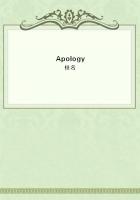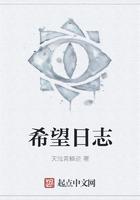I only notice this as offering a curious view of human character, which must be quite new to you.We have nothing whatever to do with clairvoyance, or with mesmerism, or with anything else that is hard of belief to a practical man, in the inquiry that we are now pursuing.My object in following the Indian plot, step by step, is to trace results back, by rational means, to natural causes.Have I succeeded to your satisfaction so far?'
`Not a doubt of it, Mr.Murthwaite! I am waiting, however, with some anxiety, to hear the rational explanation of the difficulty which I have just had the honour of submitting to you.'
Mr.Murthwaite smiled.`It's the easiest difficulty to deal with of all,' he said.`Permit me to begin by admitting your statement of the case as a perfectly correct one.The Indians were undoubtedly not aware of what Mr.Franklin Blake had done with the Diamond--for we find them ****** their first mistake, on the first night of Mr.Blake's arrival at his aunt's house.'
`Their first mistake?' I repeated.
`Certainly! The mistake of allowing themselves to be surprised, lurking about the terrace at night, by Gabriel Betteredge.However, they had the merit of seeing for themselves that they had taken a false step--for, as you say, again, with plenty of time at their disposal, they never came near the house for weeks afterwards.'
`Why, Mr.Murthwaite? That's what I want to know! Why?'
`Because no Indian, Mr.Bruff, ever runs an unnecessary risk.The clause you drew in Colonel Herncastle's Will, informed them (didn't it?) that the Moonstone was to pass absolutely into Miss Verinder's possession on her birthday.Very well.Tell me which was the safest course for men in their position? To make their attempt on the Diamond while it was under the control of Mr.Franklin Blake, who had shown already that he could suspect and outwit them? Or to wait till the diamond was at the disposal of a young girl, who would innocently delight in wearing the magnificent jewel at every possible opportunity? Perhaps you want a proof that my theory is correct? Take the conduct of the Indians themselves as the proof.They appeared at the house, after waiting all these weeks, on Miss Verinder's birthday; and they were rewarded for the patient accuracy of their calculations by seeing the Moonstone in the bosom of her dress! When I heard the story of the Colonel and the Diamond, later in the evening, I felt so sure about the risk Mr.Franklin Blake had run (they would have certainly attacked him, if he had not happened to ride back to Lady Verinder's in the company of other people); and I was so strongly convinced of the worse risks still, in store for Miss Verinder, that I recommended following the Colonel's plan, and destroying the identity of the gem by having it cut into separate stones.How its extraordinary disappearance that night made my advice useless, and utterly defeated the Hindoo plot--and how all further action on the part of the Indians was paralysed the next day by their confinement in prison as rogues and vagabonds--you know as well as I do.The first act in the conspiracy closes there.Before we go on to the second, may I ask whether I have met your difficulty, with an explanation which is satisfactory to the mind of a practical man?'
It was impossible to deny that he had met my difficulty fairly; thanks to his superior knowledge of the Indian character--and thanks to his not having had hundreds of other Wills to think of since Colonel Herncastle's time!
`So far, so good,' resumed Mr.Murthwaite.`The first chance the Indians had of seizing the Diamond was a chance lost, on the day when they were committed to the prison at Frizinghall.When did the second chance offer itself? The second chance offered itself--as I am in a condition to prove--while they were still in confinement.'
He took out his pocket-book, and opened it at a particular leaf, before he went on.
`I was staying,' he resumed, `with some friends at Frizinghall, at the time.A day or two before the Indians were set free (on a Monday, I think), the governor of the prison came to me with a letter.It had been left for the Indians by one Mrs.Macann, of whom they had hired the lodging in which they lived; and it had been delivered at Mrs.Macann's door, in ordinary course of post, on the previous morning.The prison authorities had noticed that the postmark was "Lambeth," and that the address on the outside, though expressed in correct English, was, in form, oddly at variance with the customary method of directing a letter.On opening it, they had found the contents to be written in a foreign language, which they rightly guessed at as Hindustani.Their object in coming to me was, of course, to have the letter translated to them.I took a copy in my pocket-book of the original, and of my translation--and there they are at your service.'
He handed me the open pocket-book.The address on the letter was the first thing copied.It was all written in one paragraph, without any attempt at punctuation, thus: `To the three Indian men living with the lady called Macann at Frizinghall in Yorkshire.' The Hindoo characters followed; and the English translation appeared at the end, expressed in these mysterious words:
`In the name of the Regent of the Night, whose seat is on the Antelope, whose arms embrace the four corners of the earth.
`Brothers, turn your faces to the south, and come to me in the street of many noises, which leads down to the muddy river.
`The reason is this.
`My own eyes have seen it.'
There the letter ended, without either date or signature.I handed it back to Mr.Murthwaite, and owned that this curious specimen of Hindoo correspondence rather puzzled me.















